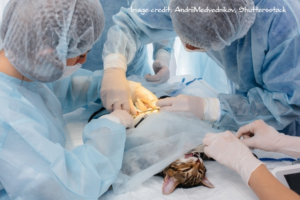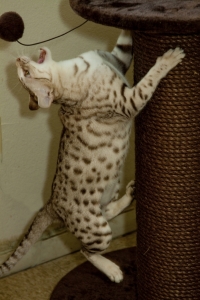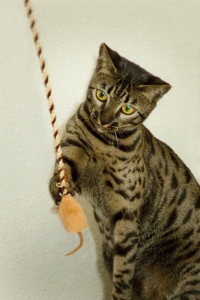
Why Spayed, Why Neuter and What to expect.
The recommended optimum age at which a cat should be spayed/neutered is about the age of sexual maturity. The basic rule of altering the cat is “5 months & 5 pounds”. This blog is all about cats, but most Pet Parents have both cats and dogs. In many cases, cats and dogs are the best buds. Since the chief reason for altering an animal is reducing health risk and increase lifespan, there is no best define age for canines. It’s different with the breed of dog. If your pet child is a dog, the best time is not an easy choice, which necessitates professional knowledge of the breed. Greyhounds, German Shepherds are breeds the altering should be completed at older ages. Please verify with the breed association for the best age and justification. Do not rely on the shelter and the veterinarian to obtain this age information. They are program to say now whether it is the best for the canine breed.
What to Expect
Preparing for surgery is like preparing a person for surgery. Food and water are withheld the night before surgery. The surgical procedure will be performed at the veterinary clinic/hospital. It is strongly recommended that blood tests for kidney and liver function be performed prior to anesthesia. It is a good indicator of the ability of the liver and kidneys to filter the drug from the cat’s body. Nothing more hurtful than learning that your pet could not wake up from the surgery because of anesthesia medications.
This is why I would never suggest, recommend or encourage kittens under 5 months to be altered. Too many chances the cat doesn’t wake up. Do not do this regardless of what your veterinarian or others say. Many shelters, Rescues will no matter how old because of the fear of more homeless cats. These services consider the risk to be worthwhile. The cat is given an anesthetic so they won’t feel or be aware of what’s happening. For male cats, a small incision is made on the testicles, and the testicles are removed. The incision is closed with either dissolvable sutures or surgical glue. Usually, male cats come home the same night unless there are complications or special concerns. Female cats have a larger incision to remove the ovaries and/or the uterus. Because this is a larger incision in the abdominal cavity, female cats may be kept overnight for observation. Your cat can usually go home the next day. Consider accepting the option of pain med for the cat post-surgery. It’s shot giving after the surgery is completed to help with pain.
Post-Operative Care
A shred of prevention is gold. Separate the alter cat from other pets and animals for a couple weeks. Check frequently to make sure your pet does not scratch, bite, or lick at the surgical site as it is healing. Most cats do not need extra medication for after care. After a week of post-operative recovery, your cat will very soon find her old mischievous self. Reassure yourself, s/he will remain the same cat that you have always known and loved.
The Benefits of Neutering and Spaying
- Prevent diseases- Spaying your female cat before her first estrous cycle (going into “heat” or being able to breed) greatly reduces her risk of cervical cancer and eliminates her risk for ovarian cancer. Because removing the ovaries reduces the levels of hormones that encourage the growth of cancerous tumors, spaying reduces your cat’s risk of mammary cancer as well. Keep in mind there are other diseases resulting from natural cat behavior when they mate. Feline leukemia and feline AIDS are two diseases spread through the bites of infected cats to other cats. By reducing your cat’s urge to fight over mates and territory, you’ll also reduce her chances of contracting these incurable diseases from other cats.
- It Reduces the Spread Of Disease – Fewer cats roaming the streets means fewer cats that can spread harmful illnesses such as rabies or the feline Panleukopenia virus and parasites such as Toxoplasma gondii or Toxocara cati. Thence, you aren’t just helping to protect your cat when you get it spayed or neutered, but you are actually contributing to a greater societal good by keeping your cat off the streets and preventing it from interacting with or impregnating a stray.
- It increases your cat’s lifespan Did you know that animals that have been neutered tend to live longer than intact animals? One reason for this is because spayed or neutered animals are less likely to wander off and possibly be hit by a car. When female cats get into heat, her hormones and instinct encourage her to find a mate. And if this is your only cat, she’ll try to escape each time you open the door so she can find one. Keep in mind that males are also trained by hormones and mating instinct, and will try their best to escape for the same reason. Both males and females are at risk outdoors of being injured as they cut across roads and highways to mate. By altering your cat, you will reduce this desire to roam and you will find that they are happy to stay in the safe and comfortable place next to you on the sofa.
- It Helps Improve Your Cat’s Behavior You are likely to find that a spayed or neutered cat is a well-behaved.Cats that have not been spayed or neutered, have a tendency to mark their territory, which can leave your home reeking of cat urine. Males, in particular, will benefit from neutering, as the surgery can help prevent embarrassing or aggressive conduct such as mounting on visitors
- Reduces fights intact male cats are driven by hormones to seek companions and defend their territory against intruders. So, two or more unaltered male cats in the same family can spell trouble. Fights tend to break out, especially when there is a female in heat in the vicinity. By sterilizing your cats, you will lessen their aggressive instincts.
- Cleaner Home male cats spray their urine on vertical surfaces to mark their territory. And while the pungent odor of an intact cat’s urine alerts other males that there’s another male is nearby who has claimed the area as his turf, it tells females he’s waiting for his chance to mate with her. An intact cat in your home may be a complicated matter. Neutering a cat reduces or eliminates the urge to spray, and if they do, the scent should be a lot milder. Female cats also pass bodily fluids when they go into estrus. These fluids also contain perfumes to alert males of a fertile female in the vicinity. By spaying your female cat, you’ll eliminate the same trouble.
- It reduces cat overpopulation and homelessness in your community a problem in many communities across the country. Not only does overpopulation leads to an abundance of cats without homes, but it can actually threaten the preservation of wildlife in your area. More than three million cats enter the shelters each year. Many shelters are limited in capacity and are unable to accommodate all incoming animals. They also often cannot adopt all of their animals, which unfortunately leads to the euthanasia of over 500,000 perfectly healthy cats each year. Spaying or neutering your cat can help hold your local cat populations, bringing down the number of cats on the streets or in overcrowded shelters. Please support the Trap, Neuter and Return programs and organization by participating and encouraging your community to develop this plan. Wildcats are part of our environmental system, but we have to have reasonable numbers. Another good idea is to discourage your local shelter and police from trapping wild cats into shelters. This is horrendous ways of controlling population numbers with nearly no success in population reductions better to trap, neuter and return. This method has proven extremely successful and keeps an important ingredient feral cats in our ecosystem.












